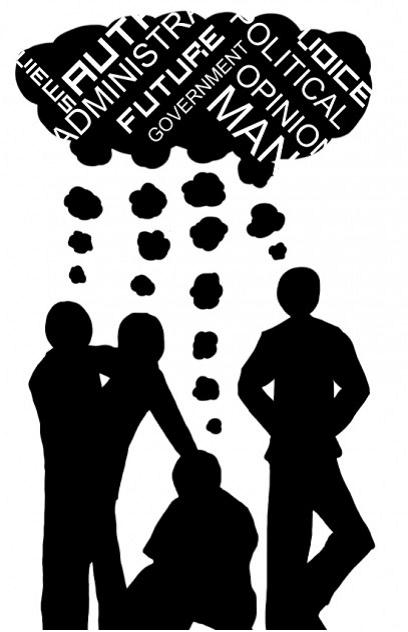
China vs. America’s idea of higher education
USINFO | 2013-12-26 14:26

Chinese culture is lauded for its emphasis on education. There’s a persistent stereotype that being “Asian” or “Chinese” means you’re smart. In some sense, that stereotype is grounded in the fact that Chinese students flat out work hard. In high school, they go to class on average 60 to 70 hours a week, 8 a.m. to 8 p.m. with some time off for meals. There’s a test called the GaoKao, which translated means literally “The High Test.” That one score determines if and where a high school student goes to college. It’s comprehensive and they spend the last two years of high school reviewing for it.
Then you get to college, where your major is determined by how high you scored on that GaoKao test. It’s not up to you; it’s up to the school administrators. In college, you probably have an average of 26 hours of class a week. All extracurricular clubs are organized by the school.
It’s striking how talking to the Chinese students here gives me a much better perspective on Whitman and America’s educational system in general. I mean, people are always complaining about how lax it is and how our test scores aren’t as good. But this reflects a basic difference in pedagogy. In China, you are bombarded with information to consume, memorize and rephrase. They start learning English in middle school and by the time they’re in college, many Chinese students can understand spoken English, watch American TV and, in general, enjoy the highlights and pitfalls of American culture.
On the other hand, we get to start clubs at school. Since middle school, there are various forms of student government. Sure, it’s easy to believe they’re just popularity contests, but that’s a rationalization. A key difference between a democratic society like the United States and an authoritarian hierarchical one like China is the lack of trust in the decision-making capabilities of others. Students don’t get to vote who gets involved in student government in China. It’s called the Communist Youth League and the professors select some of the students.
Meanwhile, we at Whitman, with our Associated Students of Whitman College, get to pick which students get to manage a budget of $450,000. Students get to pick which initiatives to fund, what stance to take on political issues and how students should respond to the administration.
Sure, it’s easy to say that student government can’t accomplish anything, but what does that mean? What are the standards determining what qualifies as an “accomplishment”? It’s easy to dream big and do nothing. At the same time, it’s easy to understand how China’s educational system breeds conformity and efficiency rather than innovation.
That’s the thing with creativity. It comes to you; you don’t come to it. It’s not something you can learn, but it’s something for which you need opportunities to take advantage of it. We have those opportunities at Whitman. It’s harder in China. Imagine trying to go whitewater rafting or teach local kids about climate change if you had class for 26 hours and everything had to be approved by a bureaucratic administration.
Luckily for us, we don’t have to deal with that. What we have are the opportunities to train ourselves on how to think “critically.” At a liberal arts college like Whitman (liberal arts colleges don’t exist in China), the emphasis is on communicating your ideas and defending them in front of others. It’s hard to realize how unique that way of teaching is until you come to a place like China. I have a Chinese tutor assigned by my program and we talk about the differences between college life in the United States and in China. It really comes down to what goes on in the classroom. It’s either heads down, notes on the page listening to an endless lecture or giving an oral presentation.
Yes, school can be a bother when there is Ankeny to frolic on. But the great thing about America’s educational system, one in which a college like Whitman can exist, is the emphasis on creativity: where being creative, self-expressive and inventive with words, ideas and the meanings of a book are up for debate or rather, are in play. That’s the hallmark of an open society that gets threatened the second we stop listening, caring and talking.
China may have a lot of advantages in terms of hard work and growth but it’s hard to see how those strengths will ever cover up for an educational system that doesn’t foster creativity.
Share this page



















